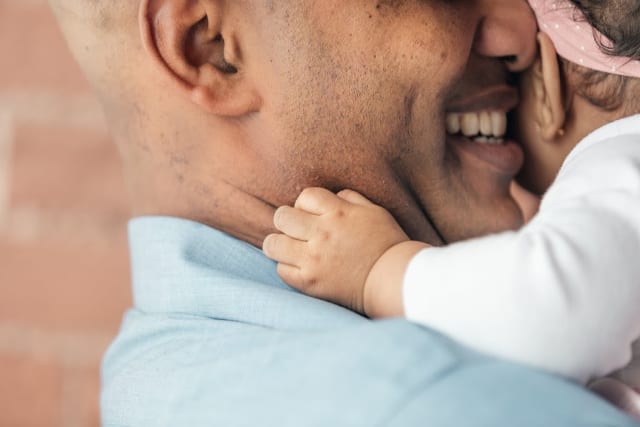Yes, hugs matter. As a matter of fact, besides providing physical affection, increased mental-health, and boosting happiness, research shows the more you hug your kids and grandkids, the smarter they get!
The science behind the emotional benefits of hugging is vast. The benefits include emotional and physical resilience. Hugging also increases trust, reduces fear and impacts parent-child bonding. An often-hugged child equals a happier, healthier kid.
And now? Hugging is more crucial than originally thought. It makes your child smarter, too.
Recent research from Nationwide Children’s Hospital in Columbus, Ohio, has found that the more you hug your child during the developmental stages of life, the more their brain grows.
In the study, 125 babies, both premature and full-term, were looked at how well they responded to being physically touched. Researchers used a soft EEG net stretched over the babies’ heads to measure brain responses.

The results found that premature babies responded to affection less than babies who were not born prematurely. That makes sense.
But the study also showed that infants who experienced more affection by parents or hospital staff showed stronger brain response.
In essence, these findings, along with so many others, tells us that something as simple as body contact or rocking your baby in your arms will make a big difference in how their brain develops.
We’d all agree that kids deserve to be cuddled and hugged. A gentle, kind, loving touch makes a difference. It can make a problem or booboo go away in seconds. The fact that it can make your child smarter is an added bonus, right?
Bottomline: Affection is vital for the development of the brain and is a key to a joyful family dynamic. Enjoy cuddling and hugging your children and grandchildren.

Related Articles
Sleeping at Grandma’s House
Family Blessings & Affirmations



